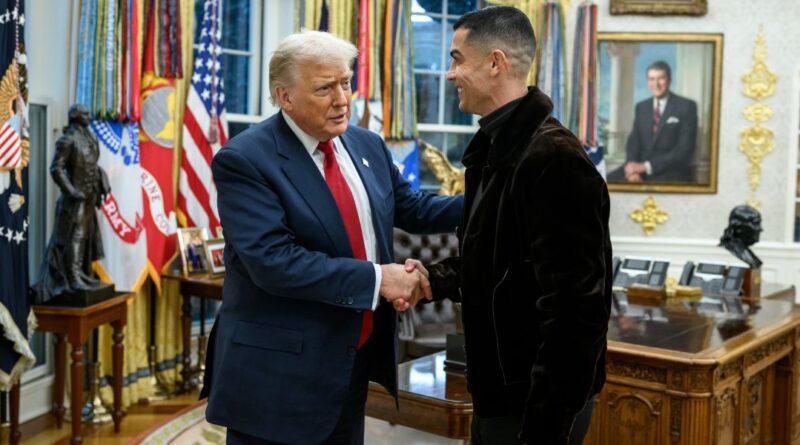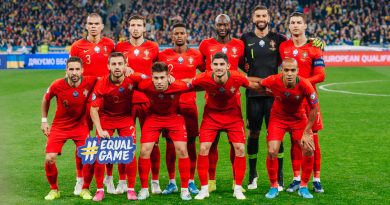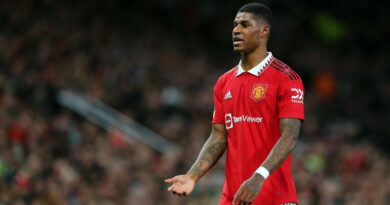Ronaldo expected to secure fresh $100m in America
Cristiano Ronaldo has spent years shaping one of the most valuable personal brands in world sport, but his recent trip to Washington may mark a new turning point in how he is perceived by American audiences and sponsors.
The 40-year-old forward attended a State Banquet at the White House earlier this week, an event that also included former U.S. president Donald Trump.
Clips of the two interacting spread quickly online, drawing attention not just from football fans but from marketing specialists who monitor the growing overlap between politics, soft power and sports.
Why Ronaldo was in Washington
State events at the White House occasionally feature international cultural and sporting figures, reflecting broader diplomatic relationships.
Read also: Why Salah’s future at Liverpool remains unsettled
For a player with one of the world’s largest social-media followings and a long history of global brand endorsements, the invitation underscores the scale of his cultural influence beyond the game.
The appearance also arrives at a moment when the United States is investing heavily in expanding its football presence ahead of the 2026 World Cup, a dynamic that makes internationally recognised athletes especially valuable to American brands.
Experts say Ronaldo’s U.S. visibility may translate into new sponsorship gains
Sports-economics analysts say Ronaldo has long operated as a billion-dollar commercial figure thanks to a combination of global fan engagement, social-media reach and luxury-market appeal.
They note that a White House appearance introduces a type of political and cultural relevance that few athletes achieve, giving sponsors a broader story to attach their products to.
Read also: Gabriel Jesus to leave Arsenal in January transfer?
Analysts also pointed to Trump’s warm public remarks about Ronaldo, including calling him a favourite in his family, saying such moments can soften a superstar’s public profile.
That kind of “earned media” often translates into measurable commercial value in the American market, where personality and relatability carry considerable weight with advertisers.
Some experts estimate that the visibility generated by this appearance could reach the high eight-figure range when factoring in media exposure and brand reach.
Ronaldo already earns more than $60 million annually from endorsements, and analysts say additional U.S. partnerships could push that number significantly higher.
Read also: Hamilton under spotlight as Ferrari eyes options for 2026
A shift in how global icons are positioned
Ronaldo is not the only player whose presence is being interpreted through the lens of economic diplomacy. Lionel Messi’s growing involvement in major business and leadership events, including forums that bring together political figures, investors and multinational executives, shows how footballers’ roles are evolving.
Messi’s impact in the United States has already been measurable. Since joining Inter Miami, the club’s valuation has surpassed $1 billion, with revenues doubling, trends widely reported by U.S. sports-industry analysts and used as evidence of football’s expanding commercial footprint in the American market.
Where Ronaldo stands in the bigger picture
Ronaldo became the first active footballer to reach billionaire status this year, thanks in part to his record-breaking deal with Al-Nassr in the Saudi Pro League, valued at more than $400 million.
His overall net worth, estimated at roughly $1.4 billion, sits well above the combined wealth of David and Victoria Beckham and remains significantly higher than Messi’s reported $850 million.
Read also: Ruben Amorim eyes huge january transfer for Manchester United
Analysts say Ronaldo and Messi now operate on global stages larger than any previous generation of players.
Ronaldo is closely associated with luxury-sector brands and major Gulf-backed ventures, while Messi increasingly serves as a bridge between North and South American markets.
Some believe that with continued strategic partnerships, both athletes could eventually surpass Beckham’s long-established dominance in the commercial and lifestyle sectors.
Ronaldo’s White House appearance highlights a wider trend though, where elite athletes are no longer just performers but also cultural emissaries, investment drivers and symbols of international alignment.
Read also: Leeds explore January move for Real Madrid star
For American companies looking to expand into global markets, and for governments seeking cultural reach, figures like Ronaldo now occupy an influential position at the intersection of sport, politics and business.
With the U.S. preparing for the 2026 World Cup and an increasingly globally connected sports economy, Ronaldo’s rising visibility in America could suggest that his next major chapter may unfold far beyond the football pitch.




